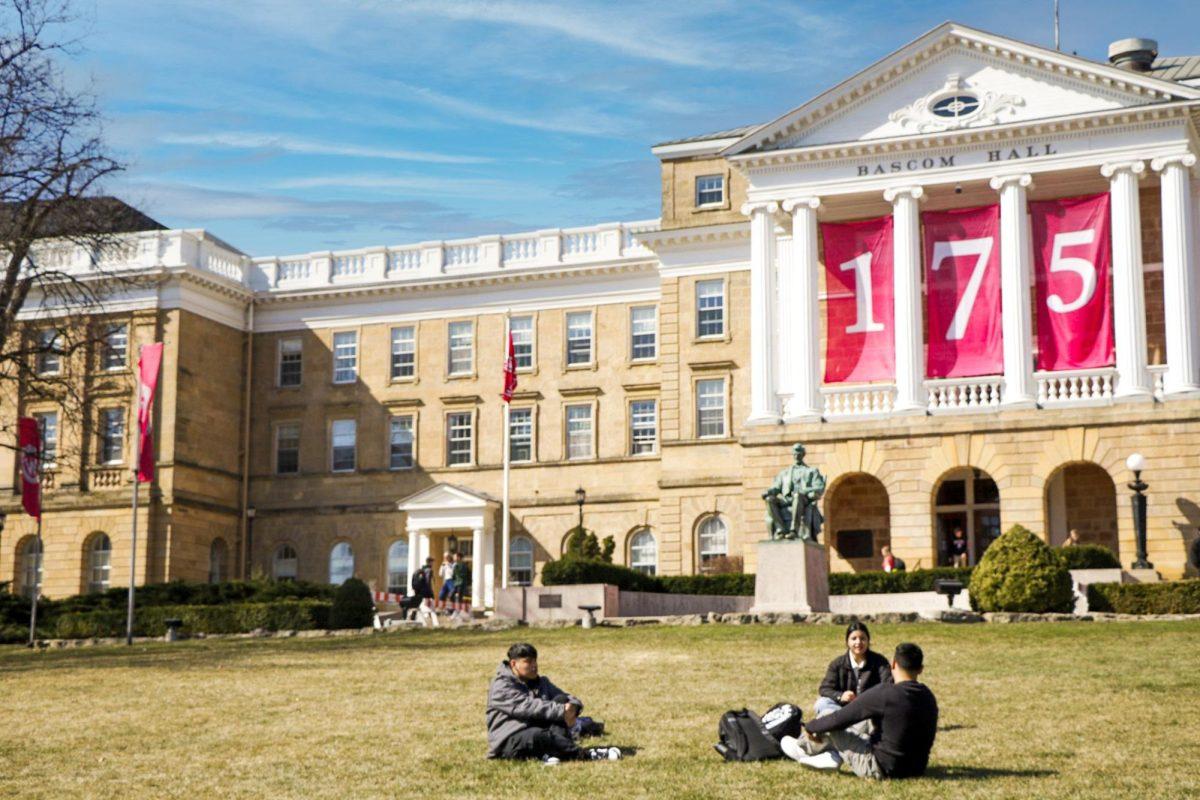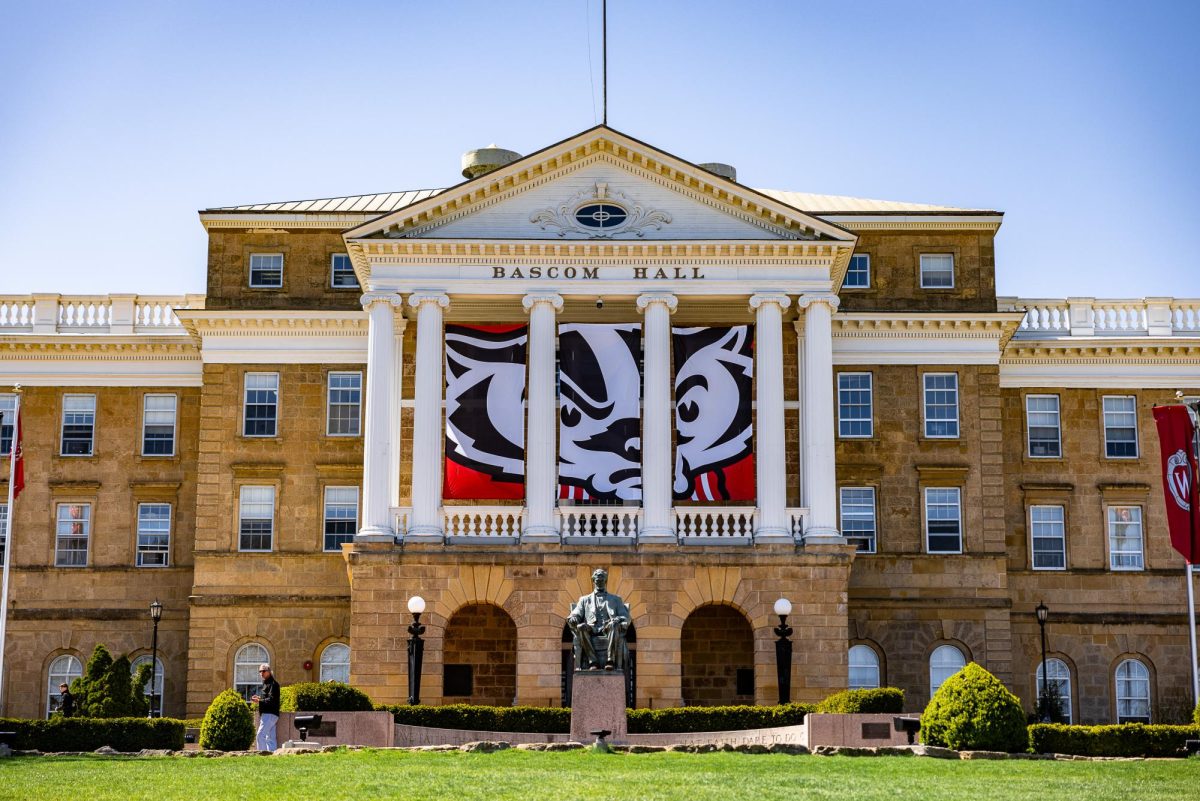
Last Saturday, as thousands of students turned out for the Mifflin Street Block Party, Sen. Fred Risser, D-Madison, celebrated his 85th birthday.
As the longest-serving state legislator in the nation, Risser recently announced he will again seek re-election. He sat down with The Badger Herald to reflect on the past session and the more than half-century he has spent in the Legislature.
The Badger Herald: Recently, you were appointed to the Special Committee on Review of Higher Education Financial Aid Programs. What work will this committee accomplish? What do you propose to help ease the cost of tuition?
Fred Risser: I really don’t know what the parameters are. But I can tell you what my goal is. We’re trying to make it possible for those who are otherwise unable to attend a school, the disadvantaged, the minorities, the poor, to attend.
If I could wave a magic wand, I would make it possible for anyone, anyone, with the desire and the ability to get a higher education, to get it regardless of finances.
And I say that from one who went to school on the GI Bill. I was in World War II, and my entire bill was paid for by the government. It was a great experience. And yet you’re not able to have that experience that I had. It would be wonderful if you had that experience.
It would be wonderful, if anyone with the desire and the ability [could have that experience,] because there’s no thing more important to society than educating its people. An educated society is one that is going to be a successful society. An uneducated society is not going to be a successful society.
BH: Would you support a cap on tuition increases?
FR: I have supported a cap in the past and I would like to see tuition going the other direction, rather than having a cap. I’m not sure what the answer is. I think one of the answers is that in many of the professions, we could somehow provide for tax credits for those who maybe stay in the state.
I think we’ve got to keep flexible. Maybe there’s a way in which you pay by the credit rather than by the year. Or maybe there’s a way in which certain fields we want to encourage – nursing or doctor or something – where we cut the education costs.
I don’t think that a cap is going to be a solution. I support that if it was the way to go, but I think we ought to look outside the box on this whole thing.
BH: How long has your family served in the Legislature?
FR: Take a look at that picture up there. Four generations. Let me tell you the story – I’ll be very brief. Now this is myself with hair on my head. And I’m the only Democrat in that picture.
This is my dad. He spent 12 years in the state Senate as a Progressive, when the Progressives were in charge. My grandfather, my mother’s father, Ernest Warner, after whom Warner Park was named, authored the original civil service act in the state. He was a La Follette Republican. And my great-grandfather, who lost an arm in the Civil War, served in both the Senate and the Assembly and was originally elected as a Unionist. Unionist, Republican, Progressive, Democrat.
Now, people say, has your ancestry changed? No. We’ve been Progressives all the way through. We represented the Progressive viewpoint. The Democrats were once the most conservative party in the state. Every one of my ancestors, I’m proud to say, were supportive of education, the general public. The parties changed.
I’m very proud of my ancestry, and I was actually born with a political spoon in my mouth. No question about it. It was a subject of dinner time conversation. My mother was the granddaughter of a state legislator, the daughter of a state legislator, wife of a state legislator and the mother of a state legislator. And there are not too many people like that in the country.
BH: When you look back at your career, what would you consider the most drastic changes in the Legislature between 1956 and now?
FR: I can remember when I served in the Legislature and there were only white men, no women, no minorities. It was all white men. … So one of the big changes, of course, is more diversity in the Legislature, and between one-fourth and one-third of the legislators are women.
We have African-Americans, both male and female, in both houses of the Legislature. We have some Latinos. In other words, we have a much more diversified Legislature now than we did, which is good. I think it should be more diversified. I would suspect on the basis of population, it’s a matter of time before at least half the Legislature are female. And that’s coming.
Yet, your great-grandmother probably didn’t have the right to vote. It didn’t happen until 1920, which doesn’t seem that far away to me. It’s far away for you but I can remember my mother had to wait to be able to vote.
Another thing that is absolutely mind-boggling is the technology. Computers were never in existence. I can remember even before they had TVs. TVs came out in World War II and I’m a veteran of the war.
And wireless. My parents could never have conceived of wireless communications and manual typewriters. You can’t even buy a manual typewriter now. It’s all they had. And for duplication, you had carbon paper. I mean, technology is tremendously changed.
And the opportunities for legislators, the tools we have. When I started off, we did not have office space. We did not have stationery. We did not have telephones. We did not have desks. All we had was a seat in the Assembly. But the facilities we have are just unlimited. … We took over the Capitol.
I was part of the movement to move the bureaucracy out of the Capitol and turn it into an office space. The Capitol, when it was built between 1907 and 1917, occupied all the state government.
Now every legislator, all 132 of us, have a room with a window and have a staff … and what’s happened is most legislators now call themselves full-time legislators, where when I started out there was no such thing as a full-time legislator, because you only met a couple months of a two-year period. Everyone had their own job. They were farmers or they were teachers or they were lawyers.
So, it’s changed tremendously. That covers a field, but those are some of the changes.














